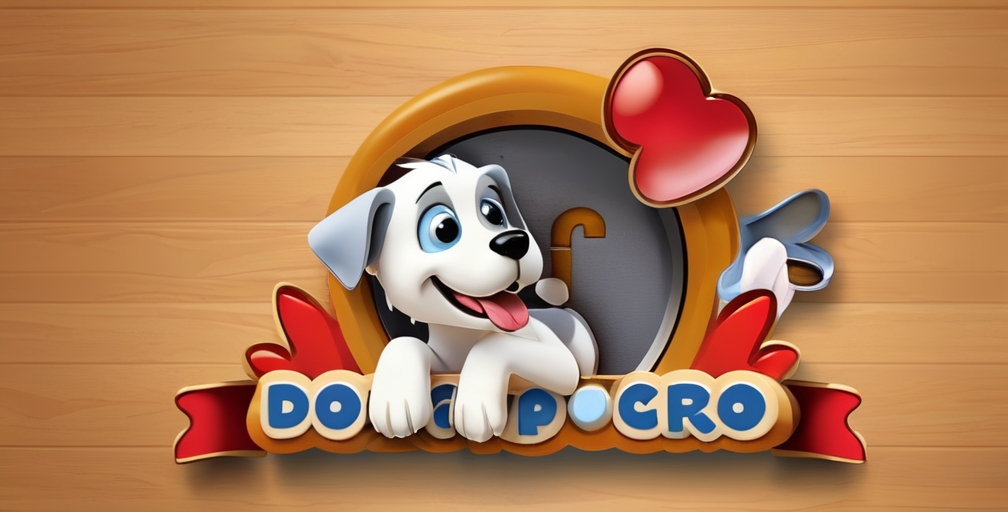Dog Nutrition Facts You Should Know
A Guide to Keeping Your Canine Companion Healthy and Happy
Your dog’s nutrition isn’t just about filling a food bowl; it’s about crafting a life of health and happiness. In our guide, we delve into the art of canine nourishment, uncovering the secrets of balanced diets, the significance of high-quality dog food, and the importance of portion control. Join us on this journey to unlock the key to your canine companion’s vitality and well-being.
Introduction
When you bring a dog into your life, you’re not just gaining a pet; you’re welcoming a loyal friend and family member. As a responsible dog owner, ensuring your furry companion’s health and happiness is a top priority.
A significant aspect of your dog’s well-being is their nutrition. Understanding what goes into their food bowl is essential for maintaining their overall health, vitality, and longevity. In this comprehensive guide, we’ll explore vital dog nutrition facts that every dog lover should know.
Whether you’re a new dog owner or a seasoned pet parent, these insights will help you make informed decisions about what you feed your beloved four-legged friend.
The Basics of Dog Nutrition
To provide your dog with the best nutrition, it’s crucial to understand the essential components of their diet.
- Proteins: Proteins are the building blocks of your dog’s body. They’re crucial for muscle development, repair, and overall growth.
- Carbohydrates: Carbs provide energy. While dogs are primarily carnivores, some carbohydrates are beneficial for energy and digestion.
- Fats: Fats are a concentrated energy source and are necessary for the absorption of fat-soluble vitamins.
- Vitamins and Minerals : These micronutrients are essential for various bodily functions. They help maintain a healthy coat, strong bones, and a well-functioning immune system.
- Water : Adequate hydration is critical for digestion, circulation, and temperature regulation.
The Importance of a Balanced Diet
Balancing these nutrients is key to ensuring your dog’s health. A balanced diet means providing the right amount of each nutrient in proportion to the others. This balance can vary depending on your dog’s age, size, and breed.
Selecting the Right Dog Food
Choosing the best food for your dog can be a daunting task due to the wide array of options on the market. Here are some considerations:
– **Life Stage**: Puppies, adults, and seniors have different nutritional needs. Ensure the food is appropriate for your dog’s life stage.
– **Size**: Small, medium, and large breeds may require different formulations to address their specific needs.
– **Ingredients**: Read the ingredients list carefully. High-quality dog food typically lists a protein source as the first ingredient, avoids excessive fillers, and is free of artificial additives.
– **Consult Your Vet**: Your veterinarian can provide guidance on the best food for your dog based on their specific health requirements.
Common Feeding Mistakes to Avoid
To keep your dog in the best possible health, steer clear of these common feeding mistakes:
– **Overfeeding**: Excess calories can lead to obesity, which is linked to a range of health issues.
– **Inadequate Hydration**: Always ensure your dog has access to fresh water. Dehydration can lead to various health problems.
– **Feeding Table Scraps**: Human food often contains ingredients that can be harmful to dogs. Stick to dog food designed for their specific nutritional needs.
– **Skipping Regular Checkups**: Regular vet checkups are crucial to monitor your dog’s overall health, including their weight and nutritional needs.
**Understanding Food Allergies and Sensitivities**
Just like humans, dogs can develop food allergies or sensitivities. Symptoms may include:
- – Digestive upset, such as diarrhea or vomiting.
– Skin issues, like itching or rashes.
– Ear infections.
– Upset stomach.
If you suspect your dog has food allergies or sensitivities, consult with your veterinarian to determine the cause and identify suitable dietary changes.
Homemade Dog Food vs. Commercial Dog Food.
The debate over homemade dog food versus commercial dog food continues. Both can be healthy options if balanced correctly. Homemade food allows for greater control over ingredients, but it can be challenging to ensure a complete and balanced diet. Commercial dog food, if of high quality, is designed to meet specific nutritional standards. Your choice should align with your dog’s specific needs and your capacity to provide balanced nutrition.
**Dietary Supplements**
In some cases, dietary supplements can be beneficial for your dog’s health. Common supplements include:
– **Omega-3 Fatty Acids**: These support skin and coat health.
– **Glucosamine and Chondroitin**: These are often used for joint health, particularly in older dogs.
– **Multivitamins**: If your dog’s diet lacks certain vitamins and minerals, supplements can help fill the gaps.
Before adding any supplements to your dog’s diet, consult your veterinarian to ensure they are necessary and safe.
The Role of Portion Control
Portion control is essential for maintaining your dog’s ideal weight. Overfeeding can lead to obesity, while underfeeding can result in malnutrition. Your dog’s nutritional needs depend on factors like their age, activity level, and overall health. Your veterinarian can provide guidance on the right portion sizes for your dog.
Special Dietary Considerations
Some dogs may have specific dietary needs due to medical conditions or allergies. There are special diets designed to address these needs. For example:
– Prescription Diets : These are formulated to manage specific health conditions, such as kidney disease or urinary issues.
– Hypoallergenic Diets**: These are for dogs with food allergies or sensitivities.
– Weight Management Diets**: Designed to help dogs lose or maintain weight.
Your veterinarian can recommend these specialized diets when necessary.
The Impact of Dog Food Quality on Longevity
The quality of your dog’s food can have a significant impact on their overall health and longevity. High-quality dog food provides essential nutrients and minimizes the risk of health problems related to poor nutrition.
Homemade Dog Food Safety
If you decide to prepare homemade food for your dog, it’s crucial to follow safety guidelines. Ensure your dog’s food includes all necessary nutrients and is free of harmful ingredients. Consult with a


